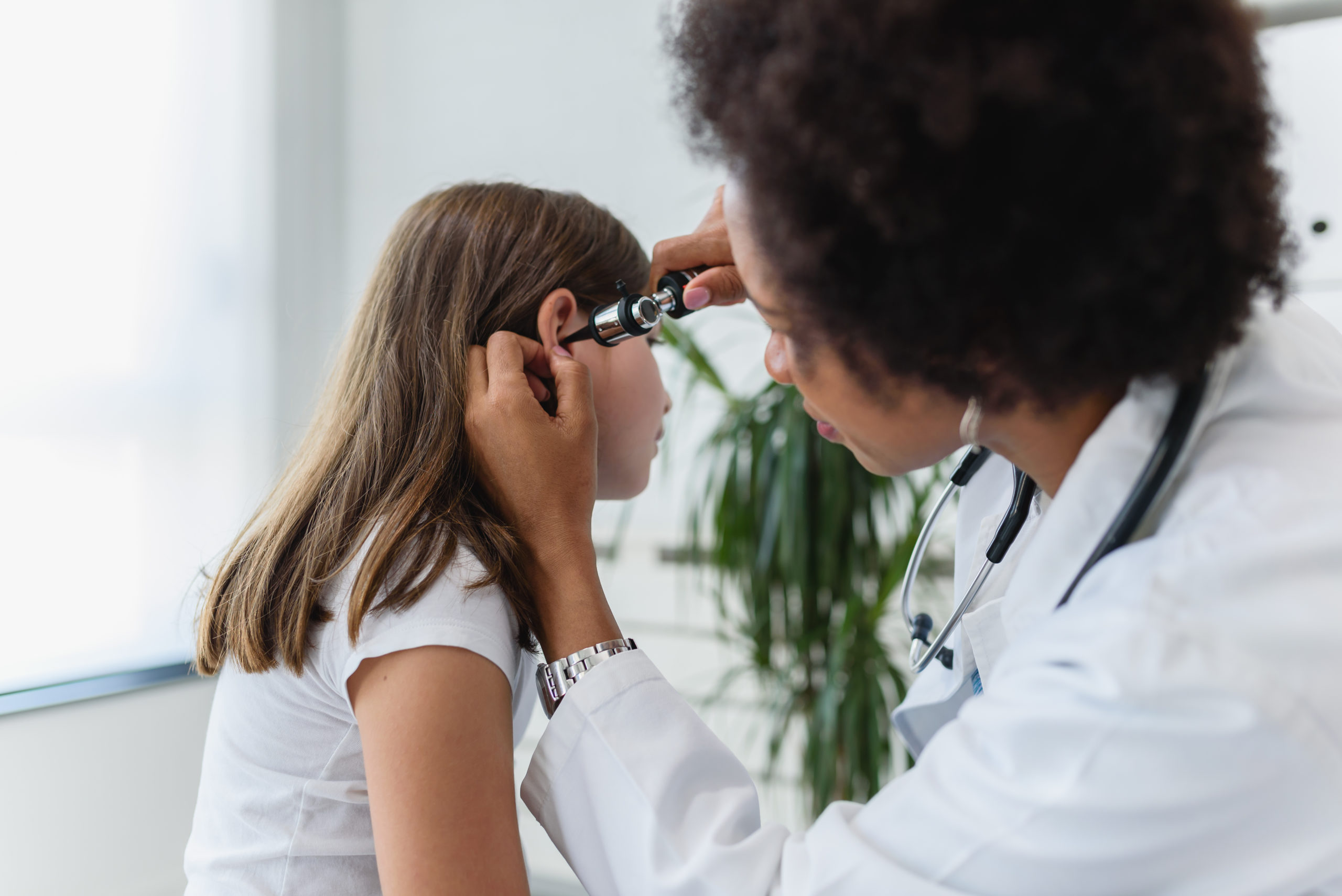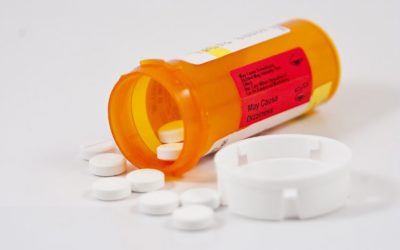If your child’s ear seems to be bothering them or causing pain, it could be an ear infection. Ear infections are more likely to occur in children than adults, though adults can get ear infections too. If you’re a parent and have had children suffer through an ear infection, you know it isn’t fun for anyone involved. Helping your child (or yourself) get over an ear infection as quickly as possible is the goal. So, what causes an ear infection and what is the best antibiotic for ear infection treatment?
Ear Infection Types, Causes, and Symptoms
When it comes to an ear infection, there are a few different types of infections, and each has its own set of symptoms.
- Middle Ear Infection: acute otitis media is a middle ear infection that can be quite painful. Another middle ear infection, otitis media with effusion, occurs when fluid builds up in the middle ear, but does not cause ear pain, fever, or pus build-up.
- Causes: A middle ear infection can be caused by bacteria such as Haemophilus influenzae or streptococcus pneumoniae. Viruses can also cause an ear infection.
- Symptoms: The most common symptoms of acute otitis media (middle ear infection) in children include fever, ear pain, difficulty sleeping, rubbing or tugging at an ear, fussiness or irritability.
- Swimmer’s Ear: otitis externa is an infection of the outer ear canal. This is different from a middle ear infection. It can happen after swimming or bathing.
- Causes: Swimmer’s Ear usually occurs when water stays in the outer ear canal for too long, creating a moist environment ideal for bacteria growth.
- Symptoms: Common symptoms of Swimmer’s Ear include redness and swelling in the ear, drainage from the ear, itchiness inside the ear, and pain when pressure is put on the outer ear or when it is tugged on.
When To Seek Medical Care for an Ear Infection
There are a variety of concerning symptoms that warrant a visit to your child’s doctor. Give your doctor a call if your child has:
- Worsening symptoms
- A fever of 102.2°F (39°C) or higher
- Middle ear infection symptoms for more than 2-3 days
- Fluid, pus, or discharge coming from the ear
- Hearing loss
If your child has any other symptom that is concerning or becomes severe, don’t hesitate to contact your doctor. The list above is not exhaustive of symptoms to watch for.
What is the Best Antibiotic for Ear Infection Treatment?
When you visit your child’s doctor for an ear infection, they will perform an examination to determine a diagnosis and treatment. Oral antibiotics are often prescribed to treat middle ear infections. Here are the most commonly prescribed antibiotics:
- Amoxil® (amoxicillin) or Augmentin® (amoxicillin/clavulanate): Amoxicillin is one of the most commonly used antibiotics to treat bacterial infections and is the preferred antibiotic for treating otitis media. It comes in a tablet, powder for suspension, chewable tablets, extended-release tablets, and capsules. Amoxicillin can be taken with or without food, but try taking it with food if stomach upset occurs.
- Cephalosporin antibiotics (cefuroxime, cefpodoxime, cefdinir): The class of medicines known as cephalosporin antibiotics can be used as an alternative to amoxicillin to treat otitis media. It comes in a tablet or powder for suspension.
- Cefuroxime suspension must be taken with food, but tablets may be taken with or without food. If stomach upset occurs, try taking the medicine with food. Avoid crushing the tablet, as it may taste bitter.
- Cefpodoxime tablets must be taken with food, while the oral liquid can be taken with or without food.
- Cefdinir may be taken with or without food, but try taking it with food if stomach upset occurs. Wait at least 2 hours before or after antacids or iron supplements to take cefdinir.
- Biaxin® (clarithromycin): Clarithromycin is used to treat bacterial infections in many parts of the body, including the ear. It comes in a tablet, extended-release tablet, and a powder for suspension. The extended-release tablets should be taken with food. Other forms of this antibiotic can be taken with milk, food, or on an empty stomach.
Swimmer’s ear can usually be treated with topical antibiotics and steroids (ear drops), but if the infection is severe, oral antibiotics may be prescribed. The preferred topical treatments for outer ear infections like Swimmer’s ear are listed here:
- Cortisporin Otic® (neomycin + polymyxin + hydrocortisone)
- Cipro HC® (ciprofloxacin + hydrocortisone)
- Ciprodex® (ciprofloxacin + dexamethasone)
Get Discounts on Antibiotics Today
When your child has an ear infection and needs antibiotics, the last thing you want to worry about is whether or not you can afford to pay for the prescription. With Easy Drug Card, you can save up to 80% on your prescriptions. Get Your FREE Pre-Activated RX Discount Card INSTANTLY and begin using it immediately at 65,000+ participating pharmacies nationwide, including most large chain stores like Walgreens, CVS, Rite-Aid as well as local neighborhood pharmacies.
Resources:
1) Johns Hopkins Antibiotic Guide
2) Lexicomp
3) “Ear Infection”, Centers for Disease Control and Prevention, 5 May 2021, https://www.cdc.gov/antibiotic-use/ear-infection.html
4) “Swimming and Ear Infections”, Centers for Disease Control and Prevention, 5 May 2021, https://www.cdc.gov/healthywater/swimming/swimmers/rwi/ear-infections.html












